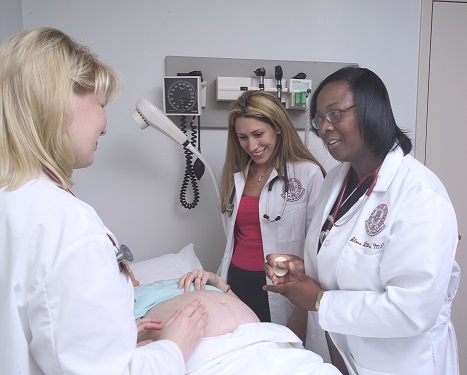Overview
 The Department of Family Medicine and Rural Health (DFMRH) has extensive teaching and leadership responsibilities throughout the four year curriculum. Faculty serve as block directors, lecturers, small group facilitators, clinical skills instructors and evaluators, and community-based preceptors. FSU College of Medicine students spend the first two years at the main campus in Tallahassee and the last two years at one of the six regional campuses and/or three rural training sites across the state.
The Department of Family Medicine and Rural Health (DFMRH) has extensive teaching and leadership responsibilities throughout the four year curriculum. Faculty serve as block directors, lecturers, small group facilitators, clinical skills instructors and evaluators, and community-based preceptors. FSU College of Medicine students spend the first two years at the main campus in Tallahassee and the last two years at one of the six regional campuses and/or three rural training sites across the state.
Kerwyn Flowers, DO serves as the Director of Clinical Programs and as the Year 3 and 4 Family Medicine Education Director. In year 3, students participate in a required 6-week Family Medicine Clerkship that focuses on family medicine as practiced in the ambulatory setting. The required 4-week Advanced Family Medicine Clerkship occurs in year 4, and focuses on the expanded scope as practiced in family medicine residency programs and in rural settings. The DFMRH also sponsors and directs rural medical education training at three rural training locations.
Dr. Flowers also serves as the Director of Rural Medical Education. In addition to Archibold Medical Center and the Immokalee site, Jackson Hospital in Marianna, Florida also serves as a third-year training site. The FSU Rural Program offers students the opportunity to spend their third year of medical school integrated into a rural medical community. However, what makes the program unique is that the students are engaged in Longitudinal Integrated Clerkships (LIC). This approach to medical education uses continuity as the organizing principle.The Rural Medical Education Program is also a part of the Tallahassee Regional Campus. John D. Byrd, MD is the local Campus Administrator.
Joanne D Saxour M.D., FAAFP directs the 3-week clinical immersion course (the Summer Clinical Practicum) at the end of first year when every first-year student is placed with a primary care physician -- especially those who treat underserved populations -- throughout the state to reinforce clinical skills and gain experience in caring for the underserved.
Steve Quintero, MD is the Medical Director of the School of Physician Assistant Practice.
Archbold Medical Center serves as a rural training site. It is located in Thomasville, Georgia. Each year five third-year medical students complete the required clinical rotations there. The hospital also has the capacity to host students fourth-year students for advanced electives. The program runs as part of the Tallahassee Regional Campus. The on-site campus administrator who handles the coordination of students and preceptors is Calvin Reams, MD.
Javier Rosado Ph.D. serves as Director of the SWFL Region. She oversees the Immokalee Health Education Site and serves as the Director of the Center for Child Stress and Health. Located in the small town of Immokalee, the site serves a rural training site providing care to a large population of Mexican migrant farm workers, as well as Haitians, African Americans, and Caucasians. The site is federally designated Health Professionals Shortage Area. The Immokalee site offers educational opportunities for Summer Clinical Practicum and various third- and fourth-year Clerkships.

